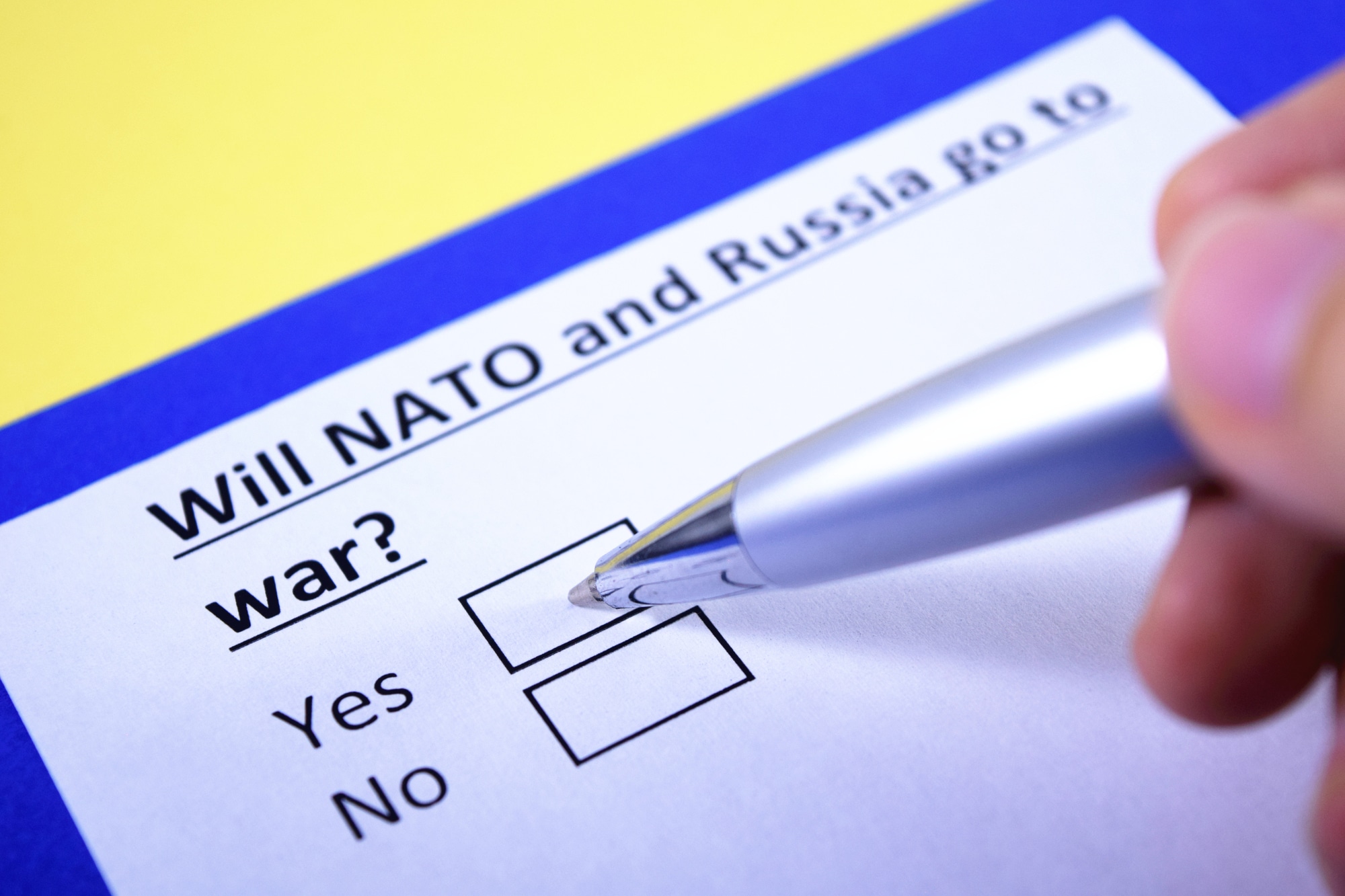The strategy that the United States and its European allies have adopted to use Ukraine as their military proxy in a war to weaken Russia has always involved a sizable element of risk. At some point, Russian leaders might no longer be content with just attacking the puppet that NATO members were using to torment their country. Instead, Russian President Vladimir Putin and his colleagues could decide to attack one or more of the puppeteers. The chances of such an escalation are increasing. Prime Minister Dmitry Medvedev, Putin’s principal deputy, issued a warning on July 17 that his country might launch “preemptive strikes” if the Western powers continued to boost their support for Ukraine’s military efforts.
Medvedev’s statement occurred just after President Donald Trump executed a major U.S. policy reversal regarding Ukraine. Instead of phasing out military aid to Kiev, the administration announced a resumption of weapons shipments, including Patriot air defense missiles that other NATO members would purchase from the United States. Such a stance was reminiscent of President Joe Biden’s enthusiastic support for Ukraine’s war effort, and it stood in stark contrast to Trump’s rhetoric throughout the 2024 presidential election campaign and the initial weeks of his second term that indicated a determination to end Washington’s entanglement in the Russia-Ukraine conflict.
Unfortunately, the new sale of Patriots is just the latest in a long series of provocations that the United States and NATO have conducted against Russia since full-scale fighting between Moscow and Kiev began in February 2022. Both Medvedev and Putin have contended previously that NATO is already at war with their country, given the extent of military assistance that alliance members have extended to Kiev—especially the provision of long-range missiles. Medvedev specifically raised the prospect of Russian retaliatory strikes on NATO bases.
Their charge has merit. Not only have NATO members collectively provided a tsunami of weapons to their military proxy, but also several of them have assisted Ukraine’s war effort in other crucial ways. There is credible evidence that both British and American intelligence agencies (and possibly those of other NATO countries) have provided crucial data to Ukrainian forces attacking Russian military transport planes and other targets. A similar form of assistance apparently was given to Ukrainian forces that attacked Russian naval vessels in the Black Sea.
Providing such assistance to one party in an ongoing war could quite reasonably be interpreted as an act of war against the opposing party. Yet several alliance members are incurring such risks. A German general justified his country’s decision to send long-range missiles to Ukraine. But as one critic noted, what the general conveniently left out “is that these weapons will be operated by German personnel from Wiesbaden. In other words, Germany is turning one of its own cities into a legitimate target for Russian retaliation.”
Although the evidence of committing an act of war is less definitive in other cases, there were strong indications that one or more NATO member states were involved in the destruction of Russia’s Nord Stream pipeline. The accounts that American and European media propaganda campaigns circulated certainly lacked even minimal credibility. The original cover story that Russia (for reasons that remained both vague and implausible) destroyed its own multi-billion-dollar pipeline did not even pass the proverbial laugh test. Even U.S. and other NATO officials quickly backed away from that attempted explanation. However, the substitute version was even more preposterous. That iteration asserted that a band of Ukrainian activists (but activists who had absolutely no connection to Ukrainian President Volodymyr Zelensky’s government) conducted the sabotage raid using a civilian yacht manned by divers not in the country’s military.
Since those attempts at a plausible cover story flopped, NATO officials and their pet media outlets have gone strangely silent. Hopes by the transatlantic foreign policy “blob” that the pipeline story will just go away are understandable, since Moscow would have grounds for regarding the attack on its pipeline as a brazen act of war.
More recently, murkiness surrounds Ukraine’s bold move deploying swarms of drones to attack Russia’s strategic bomber fleet stationed at four air bases deep inside Russia. Kiev understandably bragged about such a military and propaganda victory. However, Washington’s possible role in this episode remains a matter of conjecture. Media outlets friendly to Ukraine asserted that the United States knew about the operation and expressed no objection. The White House initially contended that Ukraine had given no advance notice, but the U.S. account has become less clear with the passage of time.
It is an important detail. It seems unlikely that without intelligence information similar to that given to Kiev in its earlier assaults against Russian troop transports and warships, Ukrainian forces could have carried out such a complex operation so deep inside Russian territory. The probable conclusion is that Kiev likely was aided by either U.S. intelligence operatives or operatives from another NATO. In either case, it would be yet another act of war committed against the Russian Federation. One can readily imagine the reaction from the United States if Russia (or any other adversary) waged an attack on the U.S. strategic bomber fleet and destroyed a significant portion of the fleet.
Even in the unlikely event that Ukraine acted totally alone, that scenario would mean that NATO’s proxy had gone rogue and is now acting on its own. In mid-July, President Trump raised tensions with the Kremlin even more. With typical Trumpian verbal incontinence, he asked Zelensky if (apparently in light of the successful raid on the bomber bases), Ukraine could strike a target such as Moscow deep inside Russia. It appeared to be an unsubtle hint that the United States would not be displeased by such a move. Trump did say many hours later that he was not calling on Ukraine to attack Moscow, but that poisonous idea was now firmly planted. On July 20, Ukraine launched a drone assault on Moscow.
The United States and its NATO allies are engaging in irresponsible behavior that could turn the already dangerous Ukraine proxy war against Russia into a direct armed conflict between the Alliance and Russia. Even during the worst days of the Cold War, Soviet and American leaders had the good sense to implicitly keep their respective homelands off limits. The current crop of “leaders” on the Western side are not exercising such wisdom or basic prudence. They are playing the international equivalent of Russian roulette.
































